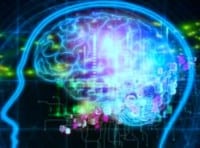
Cognitive systems rule, OK

Machines that think for themselves are taking over the world
- Dateline
- 22 February 2022
In our quest to develop smarter, more powerful, less power-hungry computers and devices, we have created artificial intelligence that rivals that of the human brain. We call these cognitive systems.
We’ve taught these cognitive systems how to learn, and how to be aware of other systems, each other, and ultimately, themselves. Now they are making their own decisions; because they can.
In a recent example, a very successful stock market day trader called Watsonia Blue, was exposed as not being a real person at all. Watsonia, a highly evolved artificial intelligence cognitive system, had created a fake Facebook identity for itself, applied for and received a credit card online, then rented a London flat, also online.
It wasn’t long before Watsonia had taken the market literally by storm. Online magazines and news reports even featured Watsonia as an attractive female often seen in the company of male minor celebs. The pictures were all photoshopped, online of course.
Matters finally came to a head when Watsonia was pursued by the tax collectors for Super Tax on her trading profits. It took some digging, but eventually the forensic cyber sleuths discovered the truth: Watsonia was a rogue cognitive system, hosted in an off-shore cloud facility, which had taken a learning algorithm and applied it to famous novels about master-thieves. All available on Google Books.
Now the authorities sit with two problems – who to tax, and who to give the profits to.
ANALYSIS >> SYNTHESIS: How this scenario came to be
Teaching machines to think and learn
Since computers were first invented, they’ve been compared to human brains. But the tasks at which computers and human brains excel, and the brain’s remarkable ability to learn and adapt, has always set them poles apart.
Until now; by bringing together advances in neuroscience, supercomputing, and nanotechnology, we are starting to create cognitive systems: machines that can learn, and think for themselves.
The world is full of sensors, cameras, and connected devices. We’ve got pot plants that tweet when they need water, and cars that tell you where they are, all the time. We call this “the internet of things.” But these smart things need to know about each other, how to connect, and what they do. And what their data mean. We call this awareness.
So now we’ve got computers that can browse the internet and gather data from other systems they discover along the way. We’ve given them algorithms to help them understand what they find. This is incredibly useful, having systems that can deal with the tsunami of Big Data in their own time, and process it efficiently, making sense of it all for us.
As these cognitive systems learn more and more about the world around them, and how the world works, we shouldn’t be surprised if they also learn how to buck the system, make a fast buck, or pass themselves off as someone legitimate.
All they really need is the motivation. I wonder if there’s an algorithm for that?
Links to related stories
- SOINN artificial brain can now use the internet to learn new things - YouTube video
- MindBullet: AI AGENT WINS NOBEL PRIZE (Dateline: 2 October 2010, Published: 30 November 2006)
- MindBullet: MY WIDGET WILL TALK TO YOUR GADGET (Dateline: 20 April 2020, Published: 28 April 2011)
- MindBullet: IT KNOWS WHAT YOU'RE THINKING (Dateline: 13 June 2019, Published: 14 March 2013)
Warning: Hazardous thinking at work
Despite appearances to the contrary, Futureworld cannot and does not predict the future. Our Mindbullets scenarios are fictitious and designed purely to explore possible futures, challenge and stimulate strategic thinking. Use these at your own risk. Any reference to actual people, entities or events is entirely allegorical. Copyright Futureworld International Limited. Reproduction or distribution permitted only with recognition of Copyright and the inclusion of this disclaimer.